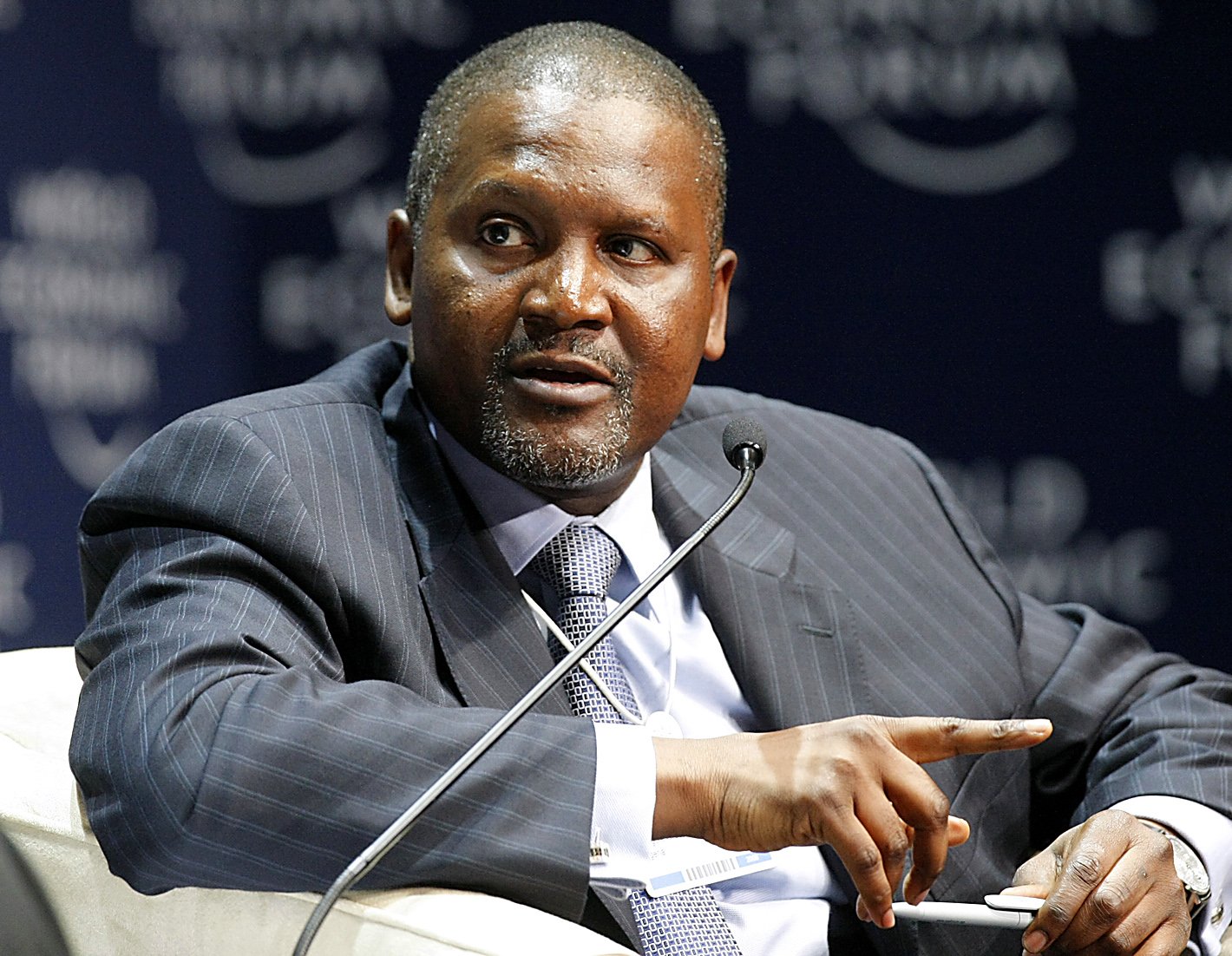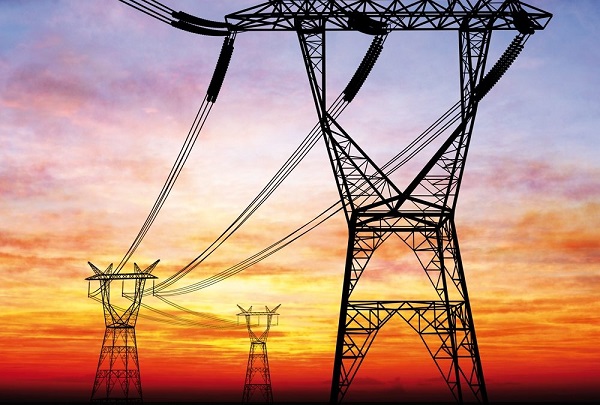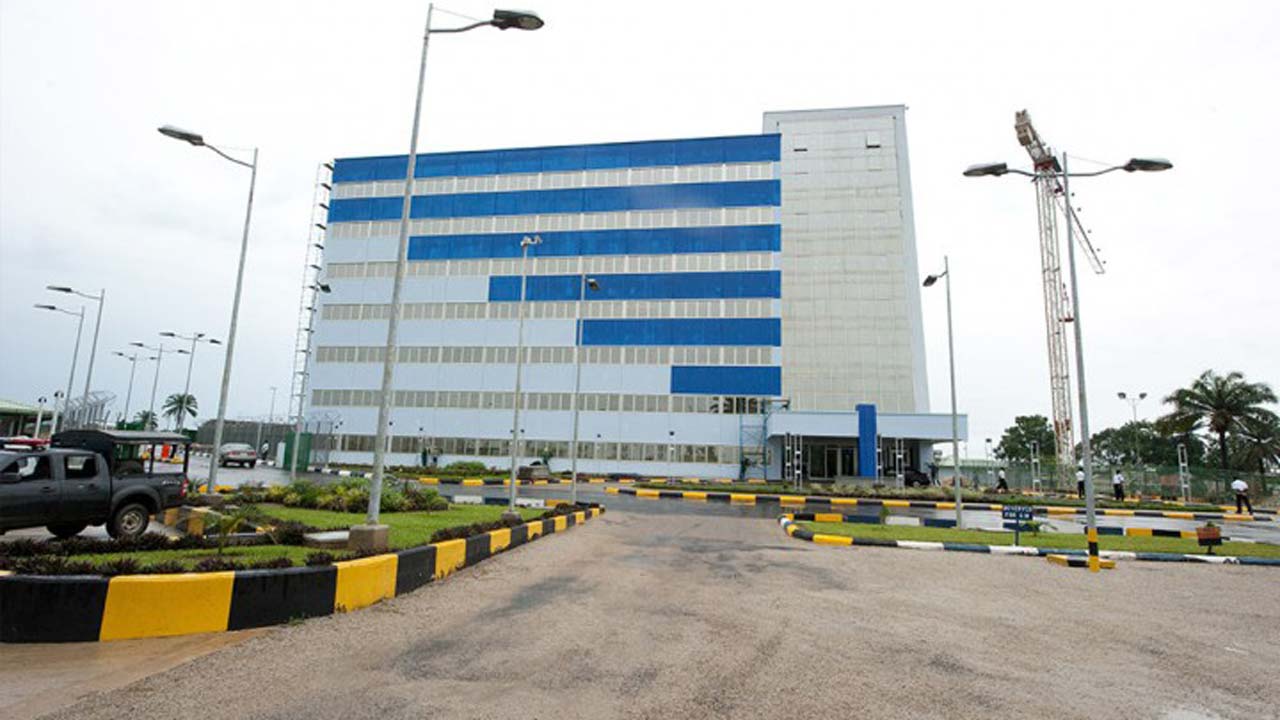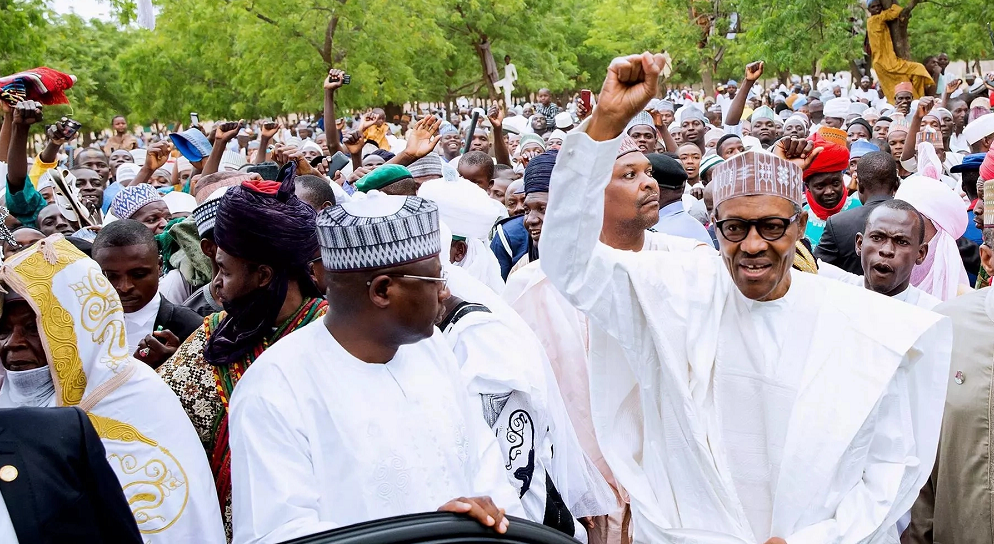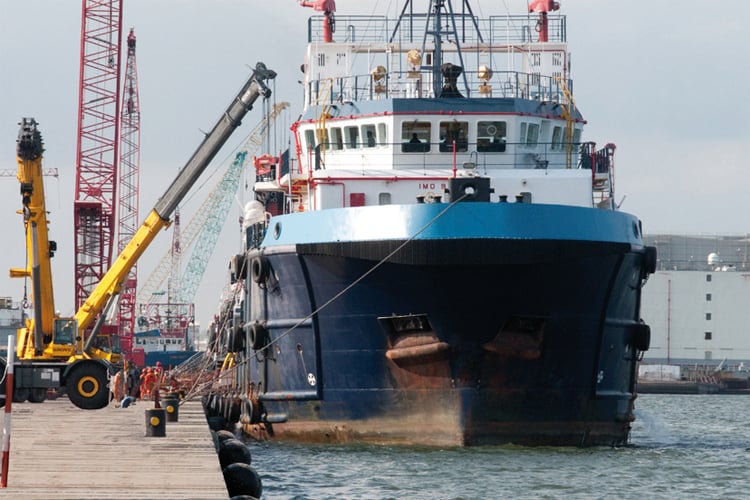BY KWAKWU BROWN
A few years ago, Nigeria was importing almost 100 percent of its cement needs. But that has changed because of a deliberate government policy that started in 2002. Then President Olusegun Obasanjo (1999-2007), due to Nigeria’s vast limestone reserves, which did not justify the importation of cement into the country, initiated a backward integration policy which allowed companies to import cement into the country only if they showed evidence of their investment in manufacturing cement locally and own and operate land base terminals.
This policy basically set Nigeria on the road to cement self-sufficiency and Aliko Dangote, now Africa’s richest man and then one of biggest importers of cement into the country, led the charge for the turnaround of the country’s cement fortunes.
Early in 2000, just a year after Nigeria transited to civilian rule, Dangote and his team had an inspirational visit to Brazil to study the emerging manufacturing sector in the country. Then, Dangote was mainly involved in trading, basically importing goods into the country to sell. But the trip to Brazil changed his perspective and he made a strategic decision to transit from a trading based business into a fully-fledged manufacturing operation. He realized that in a country like Nigeria where imports constitute the vast majority of consumed goods, a clear gap existed for a manufacturing operation that could meet the ‘basic needs’ of a vast and fast growing population.
He saw a huge potential in goods that could meet the daily needs of the average Nigerian. So he embarked on an ambitious construction programme, initially focused on the construction of flourmills, a sugar refinery and a pasta factory.
Advertisement
However, during the privatisation programme of the Federal Government in 2000, Dangote, seeing the potential in local manufacturing of cement in the country, successfully acquired the Federal Government shares in the then struggling Benue Cement Company (BCC) and began the construction of the Obajana cement plant which was commissioned in 2003. It is now the single largest cement plant in the world.
Dangote Cement has grown into a fully integrated cement company with operations in in Nigeria and 10 African countries with a combined capacity of 45.8 million metric tonnes and employing directly 16,272 employees and several more indirectly.
Dangote Cement’s current total production capacity in Nigeria from its three existing cement plants namely Obajana (13.3MMTPA), Ibese (12 MMTPA) and Gboko (4.0MMTPA) is 29.3MMTPA.
Advertisement
The Obajana Cement Plant (OCP) located in Kogi State is reputed to be the single largest cement plant in the world with a combined capacity of 13.3MMTPA.
Nigeria is now not only self-sufficient in Cement production but is also exporting to neighbouring West African countries of Niger, Togo and Ghana. A visit to the Seme border, and you will see Dangote Cement trucks carrying bags of cement across the border to Ghana.
Cement Manufacturers Association of Nigeria estimate that between 2003 and 2009, a six-year period, over US$8 billion was invested in local cement manufacturing as a result of the backward integration policy of the Federal Government. A good chunk of these investments was made by Dangote to expand production from zero in 2000 to 20 million metric tonnes by 2009. Nigeria became self-sufficient in cement production in 2012 and now has excess capacity.
Dangote is now listed on the Nigerian Stock Exchange (NSE), as the single largest firm controlling about 25 percent of market value at the point of listing.
Advertisement
In a recent article published by qz.com on 11 October, Dangote was wrongly alleged to have grown its cement empire through a cozy relationship with the government. The background on the backward integration policy of the Obasanjo administration has been given to understand the rational for the government’s initiative, which seem to have been lost on the writer of the qz article.
Dangote has been able to build a cement empire, not on government funds or patronage but with private capital including personal funds, a heavy dose of debts and reinvestment of profits from his businesses taking advantage of a deliberate government policy that was not offered exclusively to him but to all businesses operating in the country. All over the world, that is how businesses are built.
Did Dangote enjoy any special favour while building his businesses? None that was not extended to any other business in the country. Obasanjo’s policy on backward integration was applicable to every Nigerian willing to take the risk of investing in a country notorious for policy reversals. Dangote took the plunge, believing that this is a risk worth taking and it has paid off not just for his business but also for the country. Perhaps, without making those significant investments, the country would be spending billions of scarce dollars on importation of bagged cement like it does importing PMS despite the abundance crude oil in the country.
Is Dangote making excessive profits in the cement business at the expense of Nigerians?
Advertisement
The article alleges that Dangote’s profit margins are well above industry average. This is largely true. But what the writer fails to take into consideration is the efficiency levels of Dangote Cement plants compared to that of other plants. Any expert in the cement manufacturing industry will tell you that the average age of a plant has significant impact on its efficiency. Also because the plants are more modern, they are also more expensive.
Most of Dangote’s plants are relatively new and so their efficiency levels give the company an advantage in terms of cost of production, which translates into higher than average margins. However, as anyone will tell you, this advantage reduces with time as the plants get older and as other companies also acquire more efficient plants and also the cost of acquisition gets depreciated over time. So it is not surprising that the EBITDA margins of Dangote Cement has dropped from a high of over 70 percent to 41.3 percent as at 2016 financial year.
Advertisement
But then the writer also forgets that higher profit margins is also factor of internal cost control measures. Dangote has been aggressive in reducing its cost of production adopting cheaper and more efficient power sources, the biggest cost in cement production.
In the banking industry, a look at the financial performance of Nigerian banks will show that cost to income ratio for GTBank is at a low of about 36.3 percent as at third quarter 2017 compared to 60 percent for some other banks operating in the same industry. Does it mean that GTBank is being given an unfair advantage in banking by the government?
Advertisement
Are Nigerians paying excessive prices for cement? Could we say Americans are paying excessive prices for a bottle of water? A comparative analysis of the cost of 1.5 litre of bottled water shows that while it cost an average of US$1.75 in the US, the same water would cost 83 cents or less in Nigeria. What determines price in a particular location are a combination of several factors including; demand elasticity, cost of production, risk of operations and investment, among other factors. The significant housing deficits in the country coupled with low availability of alternative building materials are factors that could easily influence demand for cement and consequently prices.
The writer quotes that the average price of a 50 kg bag of cement in Africa is US$9.57 compared to US$3.25 globally. The writer is using averages which can be deceptive since housing deficits and mode of building defer widely from country to country which affects the price of cement. For example, wood as a building material in the US is popular but that cannot be said of Nigeria. Also the housing deficit in the US is not as acute as it is in Nigeria. So the price of cement in the US and that of Nigeria cannot be compared. Current average price of a bag of Cement in Nigeria is about US$7.4 (using a I & E rate of N366 to the US$), which is even below the African average. Current price of a bag of cement comes to an average of US$100 per metric tonne which is still one of the cheapest in Africa.
Advertisement
Besides in a market where Dangote is the dominant player, has the writer wondered while any of the challenger cement brands have not sought to challenge that market dominance by crashing prices? Less dominant players should be the ones crashing prices to take away Dangote’s market share but that they are not significantly crashing prices is a reflection of the Nigerian market conditions and not any deliberate effort by Dangote to keep prices high in a market where he is not a monopoly.
Does Dangote have an exclusive license for limestone? Whether it is Limestone or Granite or Gold or Gemstones or Coal or Oil, all mining licenses are exclusive to the licence holder. Other cement manufacturers in Nigeria also have exclusive mining licences to the limestone, which they use for their manufacturing. So it is a normal business practice in the mining industry. The oil companies have exclusive mining licences to their oil wells just as those who discover gold, are given exclusive licenses to their find. If Dangote had exclusive license to all the limestone deposits in the country, then there would be no competitors in cement manufacturing in the country but that is not the case.
Taxes
The writer goes on the make a weighty allegation that Dangote Cement does not pay taxes in the country because of its clever use of the pioneer status scheme. First of all, it must be noted that the pioneer status scheme was not created because of Dangote. It has been in existence for 50 years, well before Dangote started cement manufacturing locally. However, it is absolutely wrong to say that Dangote has only paid N12 billion in taxes from 2010 to 2015, without quoting the source of such information.
It is wrong to assume that because a company enjoys pioneer status, it pays no other tax. Or that because Dangote Cement enjoys pioneer status, other Dangote businesses are not taxed. Besides Corporate Income Tax (CIT), which qualifies for pioneer status, there other taxes like withholding tax, and value added tax generated by Dangote Cement.
Dangote Sugar Refinery in the 10 years between 2006 and 2016 has paid N215 billion in corporate income taxes, value added taxes and withholding tax which is more than twice the N93 billion dividend paid for the period. This can be verified from the company’s annual reports.
Dangote Cement paid N1.13 billion in income tax in 2016. New investments in new assets for the same year stood at N136 billion of which N62.9 billion was spent in Nigeria. Dangote’s businesses are not only generating taxes but are also generating jobs that are leading to income taxes being paid to the government.
It is also surprising that the writer accuses Dangote of being a monopoly in the cement business in Nigeria. That is far from the being the case. There is no doubt that Dangote is a dominant player achieved by the share size of the investments it has made in the last few years and not because there were barriers to entry for other players. Dangote’s competitors include both local and global players, one of whom, Lafarge Africa, owned by LafargeHolcim, the largest company in the world, which has the capacity to match Dangote’s investment in the Cement sector if it chooses to. Dangote’s edge in the market is purely through aggressive marketing and quality of its cement in the market. A little study by the author will also reveal that the Nigerian cement market also has niche players in different states and regions. So while Dangote dominates a particular region, other cement players have their dominance in other regions of the market.
Interestingly, the write accuses Dangote of employing just 16,272 people. It may interest writer to know that the whole oil sector employs less number of people while the banking sector employs just about 50,000. In the light of the Nigerian situation, Dangote is perhaps the single biggest employer of labour in the country currently. This is besides the indirect jobs created across the country. Distributors of Dangote Cement are all over the country. At every point a house is being built, a minimum of five jobs are created based on product manufactured locally and not imported. The impact of this is significant for the overall economy.
The writer sadly down plays the significance of the Dangote petrochemical complex including the Dangote refinery that is scheduled to come on stream in 2019. The 650,000 capacity refinery has the potential to save the country about 30 percent of its import bill, freeing billions of dollars for other sectors of the economy. The country spent US$8.4 billion importing 24.4 billion litres of PMS in 2016. That could be saved when the US$12 billion Dangote refinery comes on stream. A US$12 billion investment in any country, including the US, will attract government attention and incentives. For just US$500,000 investment, people are given citizenship in the US. For a US$12 billion investment, Donald Trump will definitely be inviting you to the white house and commissioning your plants. No genuine government sees that kind of investment and is not excited. So, the Nigerian government supporting such investments with their presence is not strange.
Before Dangote took the risk of investing the refinery project, over 18 refinery licenses were given to different investors in June 2002. Most of them have held onto these licenses for more than 15 years now without producing a single litre of PMS or diesel despite the fact that the country still imports 90 percent of its fuel needs.
Dangote has taken the plunge and is now building the largest refinery in Africa. In a few years, when the refinery comes on stream, someone will accuse him of being a monopolist because he dared to invest where no one else dared.
Dangote Cement has operation in 10 countries but the writer accuses Dangote of getting preferential treatment for foreign exchange allocations. It must be noted that at height of FX scarcity in 2016, most businesses got FX in relation to their needs. Dangote got less in relation to its needs. This was highlighted in the 2016 annual report of Dangote Cement by Aliko Dangote. In his Chairman’s speech, Dangote noted that the FX scarcity in the country has made it difficult for the company convert its naira earnings to dollars to ‘pay for imports and capital expenditure.’
To get a way round the FX scarcity in Nigeria Dangote disclosed that the company’s Pan-African diversification ‘has provided cash streams, from countries such as Senegal, Cameroon and Zambia have provided us with essential foreign currency as foreign exchange controls made it difficult for us to obtain Dollars for operations’ in Nigeria.
Furthermore, we were able to borrow money in these countries’ local currencies, thus reducing our exposure to foreign currency shortages in Nigeria. In addition, we began to generate foreign currency sales from exports of cement from Nigeria to Ghana.’
Dangote did not raid the CBN vaults for its dollars to survive the acute dollar scarcity experienced last year as insinuated by the writer. The company relied on its African operations to solve a uniquely Nigerian challenge.
The significant strides Dangote has made in a very challenging and difficult operating environment like Nigeria should not be taken for granted. His investments have shown what is possible in Nigeria and Africa and shown the light to both local and foreign investors of the opportunities that abound in Africa often sadly referred to as the ‘dark continent’. Dangote, with his investments, has shown that Africa can be a bright continent.
Views expressed by contributors are strictly personal and not of TheCable.
